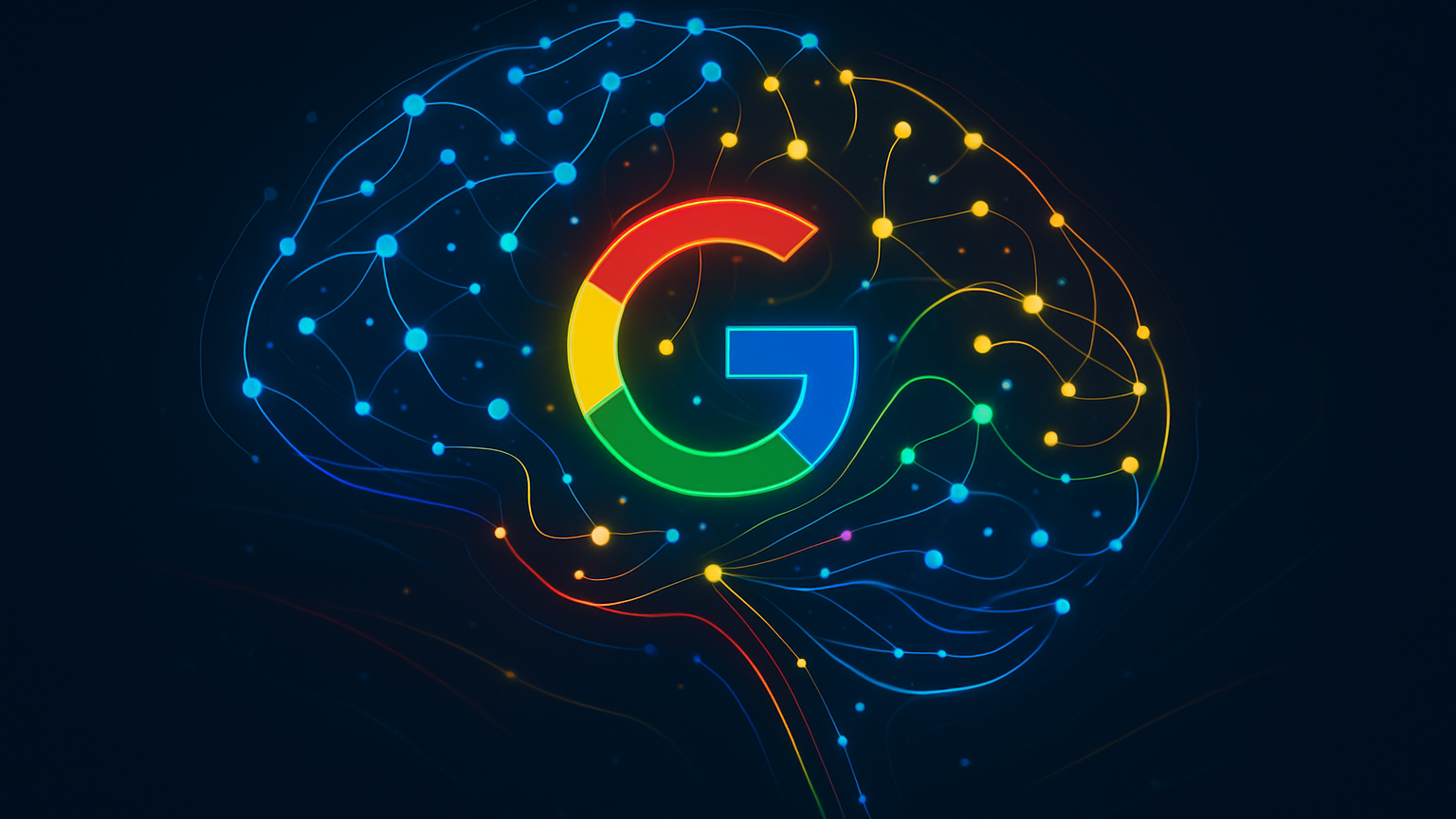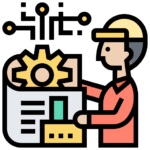
AI Tool
Google AI: Charting the Future of Intelligence

In the sprawling landscape of technological innovation, few entities command as much influence and awe as Google AI. It’s not just a division within a tech behemoth; it’s a sprawling ecosystem of research, development, and application that is actively shaping the future of how we live, work, and interact with the world. From the search bar that answers our most obscure questions to the complex algorithms that are helping to solve some of humanity’s greatest challenges, Google AI is at the forefront of the artificial intelligence revolution. This detailed exploration will journey through the multifaceted world of Google AI, from its foundational roots to its ambitious future.
The Genesis of Google’s AI Ambitions: A Look Back 📜
Google’s journey into artificial intelligence wasn’t a sudden leap but rather a gradual evolution built upon its core mission to organize the world’s information and make it universally accessible and useful. The early signs of its AI prowess were evident in products like Google Translate, which launched in 2006, using machine learning to break down language barriers.
A pivotal moment came in 2017 with the publication of the research paper “Attention Is All You Need,” which introduced the Transformer architecture. This groundbreaking neural network architecture revolutionized how machines understand and process language, laying the foundation for the powerful large language models (LLMs) we see today. The “T” in ChatGPT stands for Transformer, a testament to Google’s foundational contribution to the field.
The world truly took notice of Google’s AI capabilities with the historic victory of DeepMind’s AlphaGo over the world champion Go player in 2016. This wasn’t just about winning a complex board game; it demonstrated that AI could master tasks requiring intuition and strategic thinking, areas previously thought to be exclusive to humans. DeepMind, a UK-based AI company acquired by Google in 2014, has been a powerhouse of AI research, consistently pushing the boundaries of what’s possible.
The Pillars of Google AI: Core Research and Development 🔬
Google AI’s research spans a wide array of domains, driven by a commitment to both fundamental scientific discovery and real-world application. The research is broadly categorized into several key areas:
- Foundational Machine Learning: This includes the theoretical and practical exploration of machine learning in areas like language, speech, and computer vision.
- Frontier AI: This focuses on building the next generation of AI-powered products and driving scientific breakthroughs.
- Health: AI is being applied to transform healthcare and medicine, with projects aimed at improving disease detection and patient care.
- Quantum AI: Google is at the forefront of building powerful quantum computers, which have the potential to solve problems that are intractable for classical computers.
- Science and Sustainability: AI is being used to enable innovation in fields like biology, chemistry, and physics, as well as to drive sustainable solutions for our planet.
In 2023, a significant reorganization saw the merging of the Google Brain team and DeepMind to form Google DeepMind. This consolidation brought together some of the brightest minds in AI under one roof, poised to accelerate progress towards artificial general intelligence (AGI
The Powerhouse of Language: Google’s Large Language Models 💬
At the heart of Google’s current AI strategy are its powerful large language models. These models are trained on vast amounts of text and code, enabling them to understand and generate human-like text, translate languages, write different kinds of creative content, and answer your questions in an informative way.
From LaMDA to PaLM 2
LaMDA (Language Model for Dialogue Applications) was a significant step forward in creating more natural and open-ended conversations with AI. Announced in 2021, LaMDA was designed to be more conversational and engaging than previous models.
Building on this, Google introduced PaLM (Pathways Language Model) in 2022, a 540-billion parameter model that demonstrated remarkable capabilities in reasoning and few-shot learning across a wide range of tasks. PaLM 2, its successor, further enhanced these capabilities with improved multilingualism and reasoning skills.
The Gemini Era: A Multimodal Future ♊
The current star of Google’s AI lineup is Gemini, a family of models designed from the ground up to be multimodal. This means they can understand, operate across, and combine different types of information, including text, code, audio, image, and video. Gemini comes in different sizes, from the ultra-powerful Gemini 2.5 to the more efficient Gemini 2.5 Flash and Flash-Lite, making it adaptable for a wide range of applications.
Gemini powers a new generation of Google products, including the conversational AI now simply known as Gemini (formerly Bard), and AI Overviews in Google Search.
Google AI in Action: Transforming Products and Industries 🚀
The advancements in Google’s AI research are not confined to the lab. They are being integrated into a vast array of products and services that billions of people use every day.
- Google Search: AI has fundamentally transformed how we search for information. AI Overviews provide concise, AI-generated summaries for complex queries, and the upcoming “AI Mode” promises an even more interactive and conversational search experience.
- Google Workspace: AI is becoming an indispensable assistant in Google’s productivity suite. Features like “Help me write” in Docs and “Help me organize” in Sheets are powered by Gemini, boosting productivity and creativity.
- Google Cloud: Businesses can leverage Google’s powerful AI models and infrastructure through Google Cloud. Vertex AI provides a unified platform for building, deploying, and managing machine learning models, while tools like AutoML enable companies to build custom AI solutions with minimal coding expertise.
- Android: AI is making our smartphones smarter. Features like Smart Reply and Live Caption are powered by on-device AI, and Google Assistant continues to become more helpful and conversational.
- Healthcare: Google AI is making significant strides in healthcare, from developing AI models for more accurate breast cancer screening to creating tools that help detect diabetic retinopathy and prevent blindness.
- Robotics: Google is pushing the boundaries of robotics with projects like Gemini Robotics, which aims to equip robots with advanced reasoning and dexterity.
The Moral Compass: Google’s Approach to AI Ethics 🤔
As AI becomes increasingly powerful, the ethical implications of its development and deployment are paramount. Google has established a set of AI principles to guide its work, committing to building AI that is socially beneficial, avoids creating or reinforcing unfair bias, is built and tested for safety, is accountable to people, and incorporates privacy design principles.
However, Google’s journey with AI ethics has not been without controversy. The company faced internal and external backlash over its involvement in Project Maven, a U.S. military project that used AI to analyze drone footage. This led to the creation of an Advanced Technology External Advisory Council (ATEAC), which was quickly disbanded after objections to one of its members.
More recently, in early 2025, reports emerged that Google had updated its AI principles, removing previous language that explicitly ruled out using AI for weapons or surveillance. Google defended the changes, stating a belief that democracies should lead in AI development while adhering to core values. This has sparked renewed debate about the ethical guardrails for AI development and the role of major tech companies in shaping its future.
Despite these challenges, Google continues to invest in responsible AI development, with dedicated teams working on fairness, transparency, and accountability.
AI for Everyone: Democratizing Technology and Fostering Social Good 💖
A core part of Google’s AI philosophy is to make its benefits accessible to everyone. This is reflected in its open-source contributions, such as TensorFlow, a popular machine learning framework that has democratized AI development.
Through its “AI for Social Good” program, Google supports organizations using AI to address pressing global challenges. These projects span a wide range of areas, including:
- Public Health: Supporting projects that forecast health risks and the need for critical resources in underserved communities.
- Agriculture: Helping farmers with market intelligence and improving crop and irrigation planning.
- Conservation: Using AI to understand and protect animal populations.
- Flood Forecasting: Combining physics-based modeling and AI to provide earlier and more accurate flood warnings.
The Road Ahead: The Future of Google AI 🌌
The pace of innovation at Google AI shows no signs of slowing down. The company is relentlessly pushing towards a future where AI is even more capable, helpful, and integrated into our lives.
Key areas of future focus include:
- Artificial General Intelligence (AGI): The ultimate goal for many in the field, AGI refers to an AI with human-like intelligence and the ability to learn and adapt across a wide range of tasks.Google DeepMind’s CEO, Demis Hassabis, believes AGI could be a reality within the next decade.
- AI Agents: The development of sophisticated AI agents that can understand complex instructions and carry out tasks on behalf of users is a major area of research. Project Astra is a universal AI assistant initiative that aims to create a deeply contextual and helpful assistant.
- Robotics and Embodied AI: Bringing AI into the physical world through more capable and adaptable robots is a key priority.
- Scientific Discovery: AI is poised to revolutionize scientific research, accelerating breakthroughs in areas like medicine, materials science, and climate change. Projects like AlphaFold, which can predict protein structures with incredible accuracy, are just the beginning.
Google AI: Your Questions Answered ❓💡
Here are some common questions about the multifaceted world of Google AI, with answers drawn directly from our comprehensive article:
1. Q: What exactly is Google AI?
A: Google AI is not a single product. It’s a broad, company-wide initiative at Google that infuses artificial intelligence (AI) and machine learning (ML) into nearly all of Google’s products and research endeavors. It represents the collective efforts of Google Research, DeepMind, and various product teams.
2. Q: When did Google start seriously focusing on AI?
A: Google’s journey into AI was gradual, but key milestones include the Google Brain project (circa 2011), the acquisition of DeepMind (2014), and CEO Sundar Pichai declaring Google an “AI-first” company around 2016. The “Google AI” banner was established in 2018 to unify these efforts.
3. Q: What are the core technologies behind Google AI?
A: The core technologies include Machine Learning (ML) (supervised, unsupervised, reinforcement learning), Deep Learning (DL) using neural networks, Natural Language Processing (NLP) (e.g., BERT, MUM), Computer Vision, Large Language Models (LLMs) (e.g., LaMDA, PaLM), Generative AI, and open-source tools like TensorFlow and JAX.
4. Q: How is Google AI used in everyday Google products?
A: Google AI enhances many products:
* Google Search: Improves understanding of queries (RankBrain, BERT, MUM) and personalizes results.
* Google Assistant: Powers voice understanding and conversational abilities.
* Google Photos: Organizes photos, enables intelligent search, and creates automatic albums.
* Google Translate: Provides more accurate neural machine translations.
* Gmail: Powers Smart Compose, Smart Reply, and spam filtering.
* YouTube: Drives video recommendations and content moderation.
* Waymo: Underpins its self-driving car technology.
* Google Maps: Optimizes routes and predicts traffic.
* Google Bard/Gemini: Provides conversational AI and generative capabilities.
5. Q: What is DeepMind, and what are its major achievements?
A: DeepMind is an AI research lab acquired by Google in 2014 with a mission to “solve intelligence.” Its major achievements include AlphaGo (mastering the game of Go), AlphaFold (revolutionizing protein structure prediction), and AlphaStar (excelling at StarCraft II).
6. Q: What is Google Gemini?
A: Google Gemini is Google’s most capable and general AI model to date. It’s multimodal, meaning it can understand and operate across different types of information like text, code, images, and video. It powers Google’s conversational AI service, Bard.
7. Q: How does Google approach AI ethics and responsible development?
A: Google published its AI Principles in 2018, guiding AI development to be socially beneficial, avoid unfair bias, be safe, accountable, respect privacy, and uphold scientific excellence. Google explicitly states it will not develop AI for weapons, harmful surveillance, or technologies violating international law and human rights. This is an ongoing focus area termed Responsible AI Google.
8. Q: What is TensorFlow?
A: TensorFlow is an open-source software library developed by Google primarily for machine learning and deep learning applications. It has become one of the most popular platforms for building and deploying ML models, contributing to the democratization of AI.
9. Q: How does Google AI contribute to scientific research?
A: Beyond product applications, Google AI Research and DeepMind contribute significantly to fundamental science. A prime example is DeepMind AlphaFold, which accurately predicts protein structures, accelerating biological research, drug discovery, and disease understanding. They also research AI for climate science, healthcare diagnostics, and more.
10. Q: What is “Generative AI” at Google?
A: Generative AI Google refers to AI systems that can create new, original content, such as text, images, audio, video, and code. Examples include Google Bard/Gemini for text generation and conversational AI, Imagen for text-to-image generation, and MusicLM for text-to-music generation.
11. Q: Can businesses and developers use Google’s AI capabilities?
A: Yes, through Google Cloud AI Platform and Vertex AI, Google provides businesses and developers with access to its powerful AI tools, pre-trained models, MLOps capabilities for custom model development, and specialized AI hardware like Tensor Processing Units (TPUs).
12. Q: What are some challenges Google AI faces?
A: Challenges include intense competition in the AI field, navigating complex ethical and societal hurdles (like bias, job displacement, and misinformation), the long path towards potential Artificial General Intelligence (AGI), evolving AI regulations, and maintaining innovation at scale.
13. Q: What was the “Google Brain” project?
A: The Google Brain project, initiated around 2011, was a deep learning research project that aimed to build large-scale neural networks. It was a significant step in Google’s AI journey, famously demonstrating unsupervised learning by teaching a neural network to recognize cats from YouTube video thumbnails.
14. Q: What does “AI-first” mean for Google?
A: When Google CEO Sundar Pichai declared Google an “AI-first” company (around 2016), it signaled a fundamental strategic shift. It meant that Artificial Intelligence at Google would be the primary driver of innovation across all its products and services, rather than just a supporting technology.
15. Q: How is Google AI contributing to “AI for Social Good”?
A: Google AI is actively applied to address global challenges. This includes projects related to climate change (e.g., optimizing energy use, flood prediction), healthcare (e.g., disease detection, cancer screening), and accessibility (e.g., tools for speech-impaired individuals like Project Euphonia).
Conclusion: A Future Forged by Intelligence ✨
Google AI stands as a testament to the transformative power of artificial intelligence. Its journey, from early machine learning applications to the sophisticated multimodal models of today, has been one of relentless innovation. While the path forward is not without its ethical and societal challenges, Google’s commitment to pushing the boundaries of what’s possible with AI is undeniable. As we look to the future, it’s clear that Google AI will continue to be a driving force in shaping a world where intelligence, both human and artificial, works in concert to solve our biggest problems and unlock our greatest potential. The age of AI is here, and Google is one of its chief architects.
10 thoughts on “Google AI: Charting the Future of Intelligence”
Leave a Reply
You must be logged in to post a comment.










Sprunki Incredibox is a brilliant evolution of the original, offering fresh beats and visuals that keep the creative flow alive. It’s no wonder fans are raving – check out the mod here.
I am truly thankful to the owner of this web site who has shared this fantastic piece of writing at at this place.
Thank you so much for your kind and generous words! Your appreciation truly means the world to us here at SuqMall. We are delighted to hear that you found the article valuable and enjoyable. Our team is dedicated to creating high-quality content that informs, inspires, and supports our wonderful community of readers like you.
It’s always rewarding to know that our efforts are making a positive impact. Your feedback motivates us to continue sharing more fantastic pieces and to keep improving our platform. If there are any specific topics or questions you’d like us to cover in the future, please don’t hesitate to let us know—we love hearing from our readers and value your input.
Once again, thank you for taking the time to share your thoughts and for being a part of the SuqMall family. We hope you continue to enjoy our content and have a great experience every time you visit our site!
Wishing you all the best,
The SuqMall Team
Хотите собрать информацию о пользователе? Этот бот предоставит детальный отчет мгновенно.
Используйте уникальные алгоритмы для поиска публичных записей в открытых источниках.
Узнайте контактные данные или активность через систему мониторинга с верификацией результатов.
глаз бога телефон
Бот работает в рамках закона , используя только общедоступную информацию.
Закажите расширенный отчет с геолокационными метками и списком связей.
Доверьтесь проверенному решению для исследований — точность гарантирована!
Rolex Submariner, выпущенная в 1954 году стала первой дайверской моделью, выдерживающими глубину до 100 метров .
Модель имеет вращающийся безель , Oyster-корпус , обеспечивающие безопасность даже в экстремальных условиях.
Конструкция включает светящиеся маркеры, стальной корпус Oystersteel, подчеркивающие функциональность .
rolex-submariner-shop.ru
Механизм с запасом хода до 70 часов сочетается с автоматическим калибром , что делает их идеальным выбором для активного образа жизни.
За десятилетия Submariner стал эталоном дайверских часов , оцениваемым как эксперты.
Dxd Global | Development dxd global, global dxd, deluxe bilisim, deluxe global, IT solutions, web developer, worpress global, wordpress setup
Хотите собрать данные о пользователе? Этот бот предоставит детальный отчет мгновенно.
Воспользуйтесь уникальные алгоритмы для поиска цифровых следов в открытых источниках.
Выясните место работы или активность через автоматизированный скан с верификацией результатов.
глаз бога бот ссылка
Система функционирует с соблюдением GDPR, обрабатывая открытые данные .
Закажите расширенный отчет с историей аккаунтов и списком связей.
Попробуйте надежному помощнику для digital-расследований — точность гарантирована!
XEvil 6.0 automatically solve most kind of captchas,
Including such type of captchas: ReCaptcha-2, ReCaptcha v.3, Google, Solve Media, BitcoinFaucet, Steam, +12k
+ hCaptcha, FC, ReCaptcha Enterprize now supported in new XEvil 6.0!
1.) Fast, easy, precisionly
XEvil is the fastest captcha killer in the world. Its has no solving limits, no threads number limits
2.) Several APIs support
XEvil supports more than 6 different, worldwide known API: 2captcha.com, anti-captchas.com (antigate), rucaptcha.com, death-by-captcha, etc.
just send your captcha via HTTP request, as you can send into any of that service – and XEvil will solve your captcha!
So, XEvil is compatible with hundreds of applications for SEO/SMM/password recovery/parsing/posting/clicking/cryptocurrency/etc.
3.) Useful support and manuals
After purchase, you got access to a private tech.support forum, Wiki, Skype/Telegram online support
Developers will train XEvil to your type of captcha for FREE and very fast – just send them examples
4.) How to get free trial use of XEvil full version?
– Try to search in Google “Home of XEvil”
– you will find IPs with opened port 80 of XEvil users (click on any IP to ensure)
– try to send your captcha via 2captcha API ino one of that IPs
– if you got BAD KEY error, just tru another IP
– enjoy! 🙂
– (its not work for hCaptcha!)
WARNING: Free XEvil DEMO does NOT support ReCaptcha, hCaptcha and most other types of captcha!
В КАНАЛЕ ЕСТЬ ВСЁ:
> Рейтинг ТОП-10 лицензированных live-казино
> Зеркала с актуальными доменами
> Бездепозитные бонусы + фриспины
> Стратегии для Crazy Time, Mega Roulette
ПРОМОКОД “узнаешь внутри” > Регистрация > Игра > Вывод ?!
https://t.me/s/iGaming_live/3300
Официальный канал Live-казино: рейтинги проверенных площадок, актуальные зеркала и бонусы. Разбираем стратегии для рулетки, блэкджека и игровых шоу. Эксклюзивные промокоды для максимального старта. Регистрируйся, играй и выводи выигрыши!
https://t.me/s/iGaming_live/290